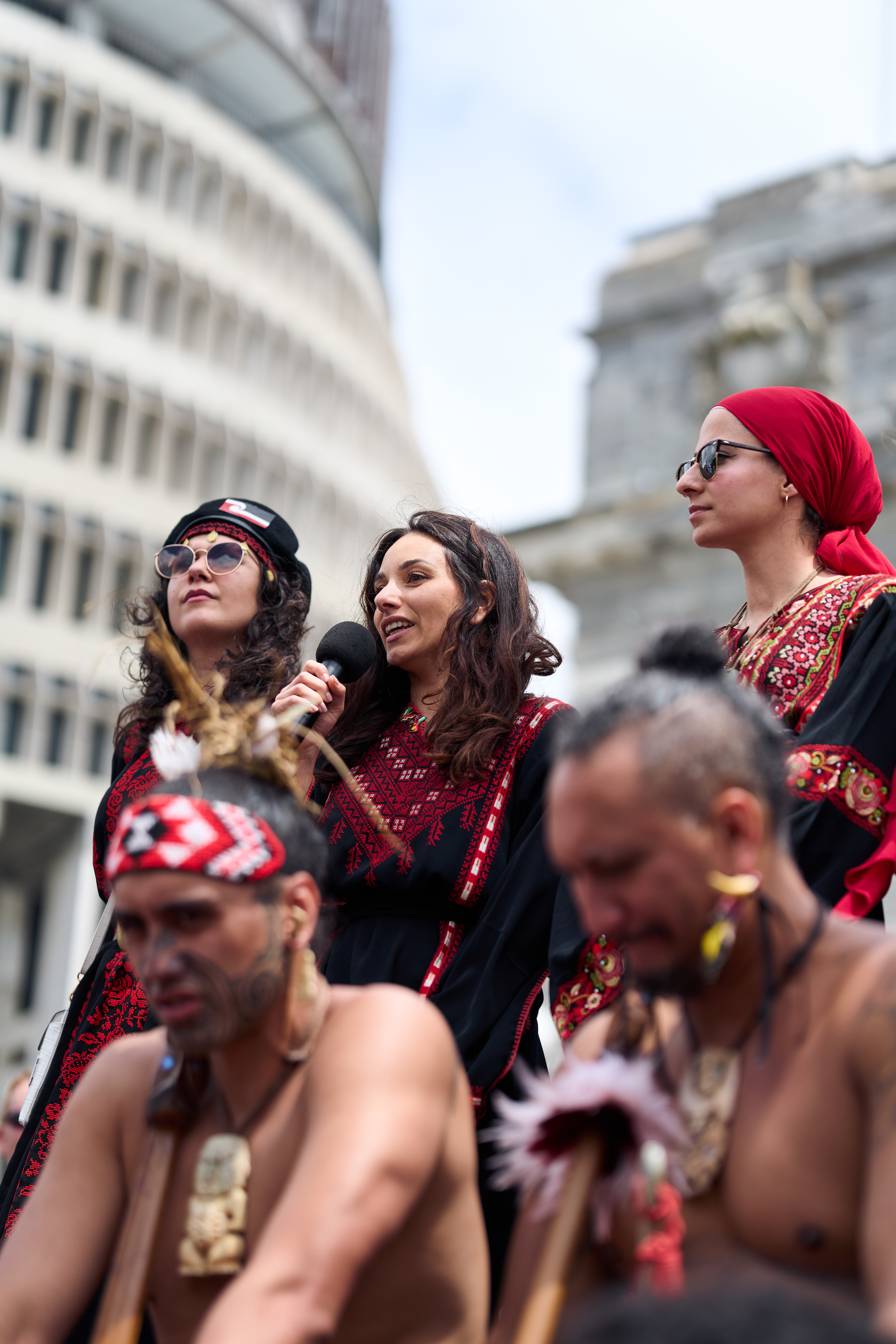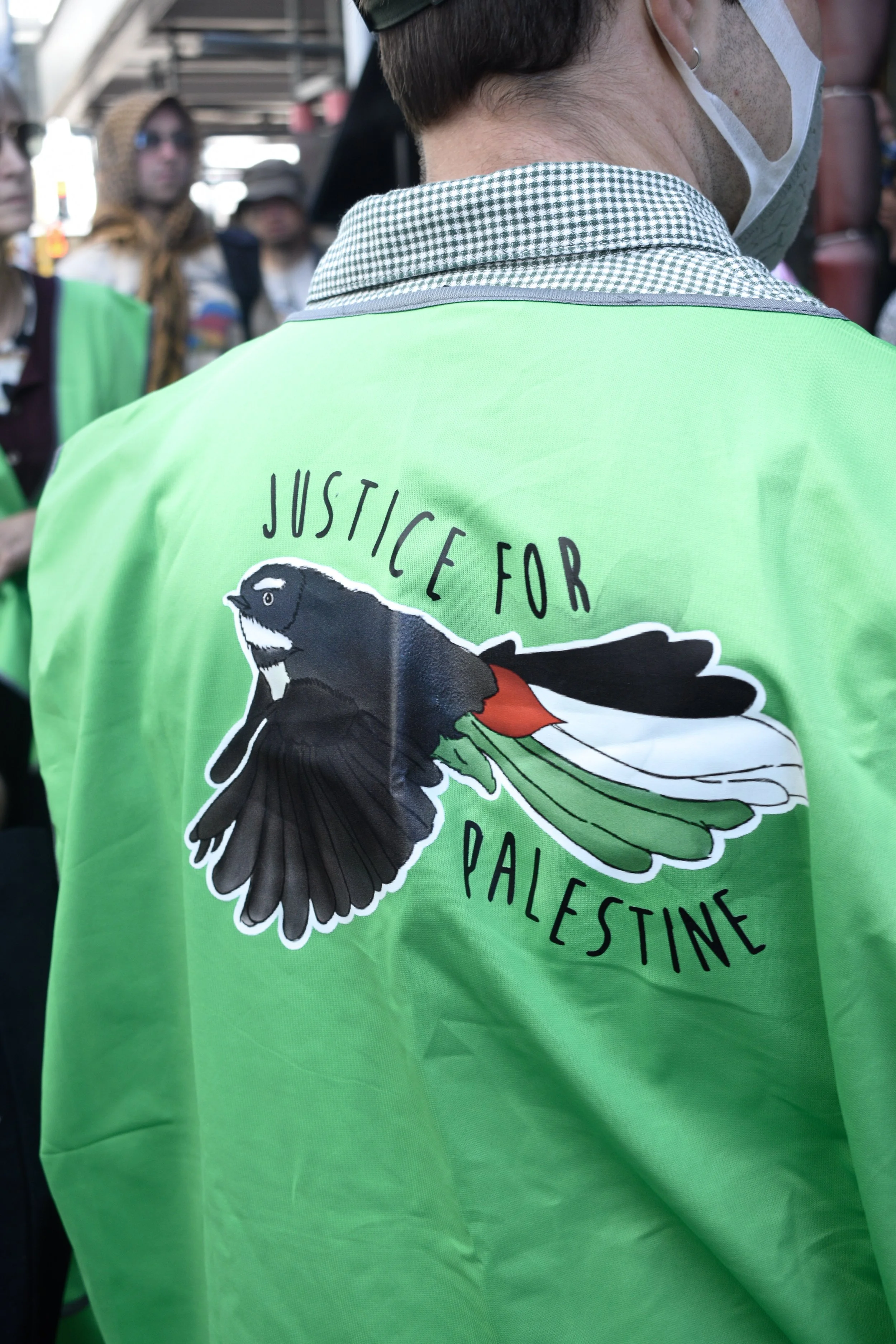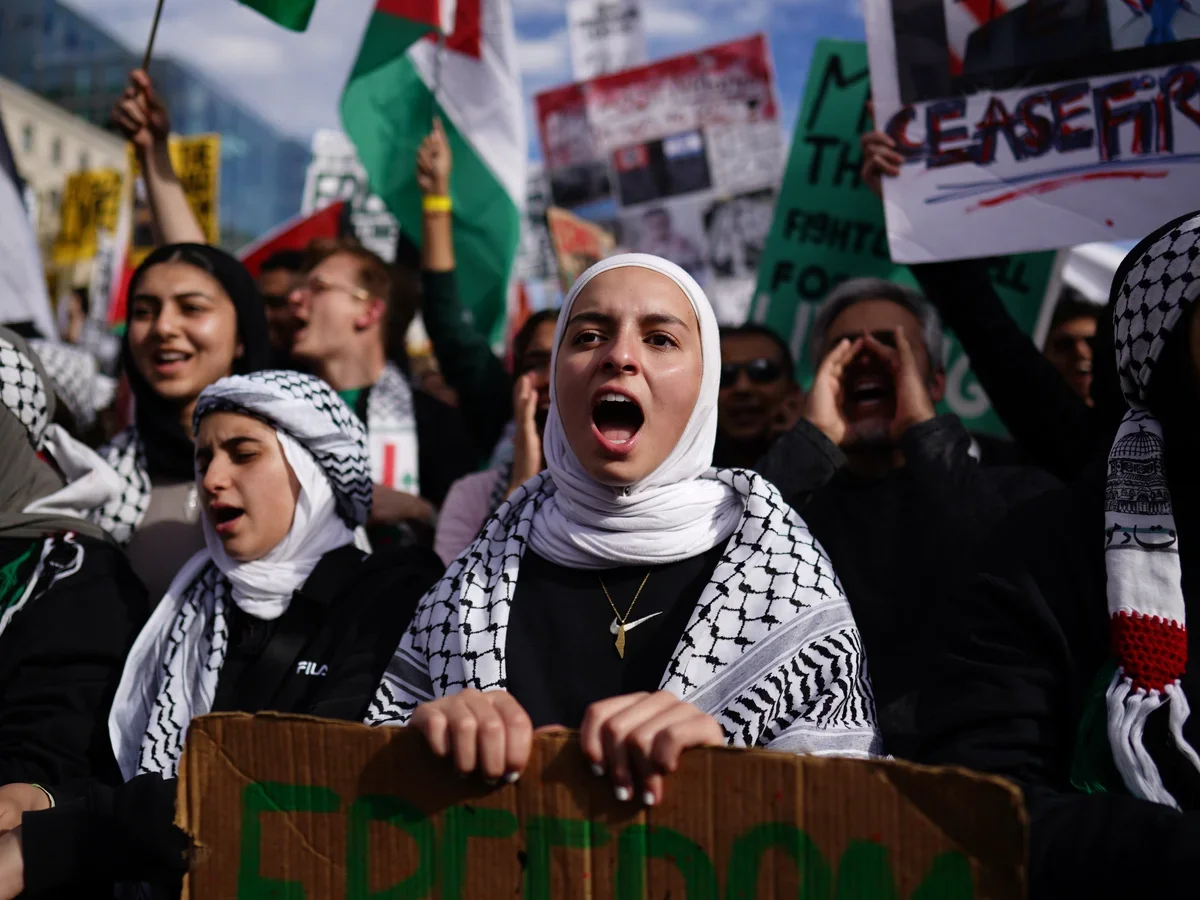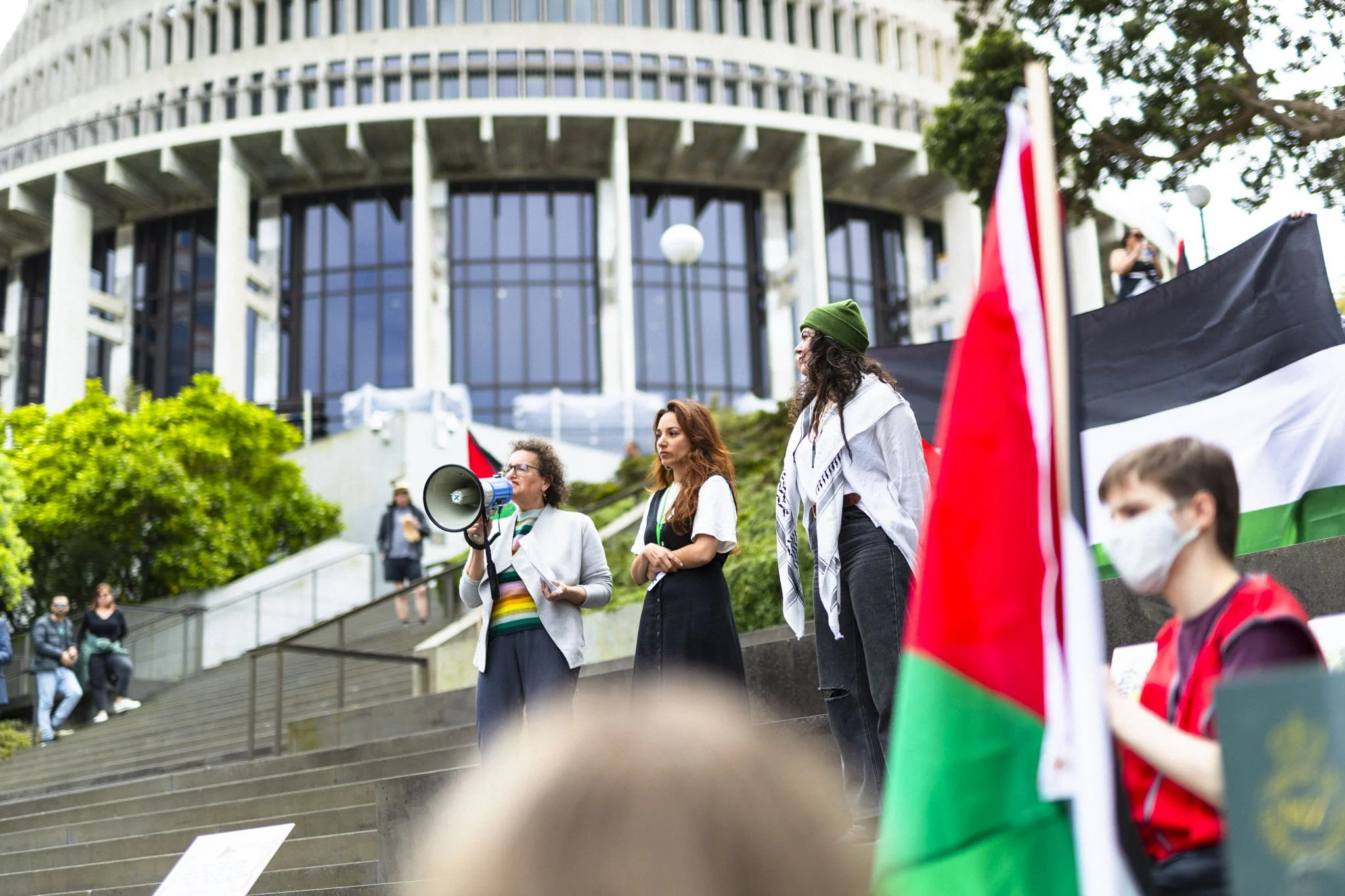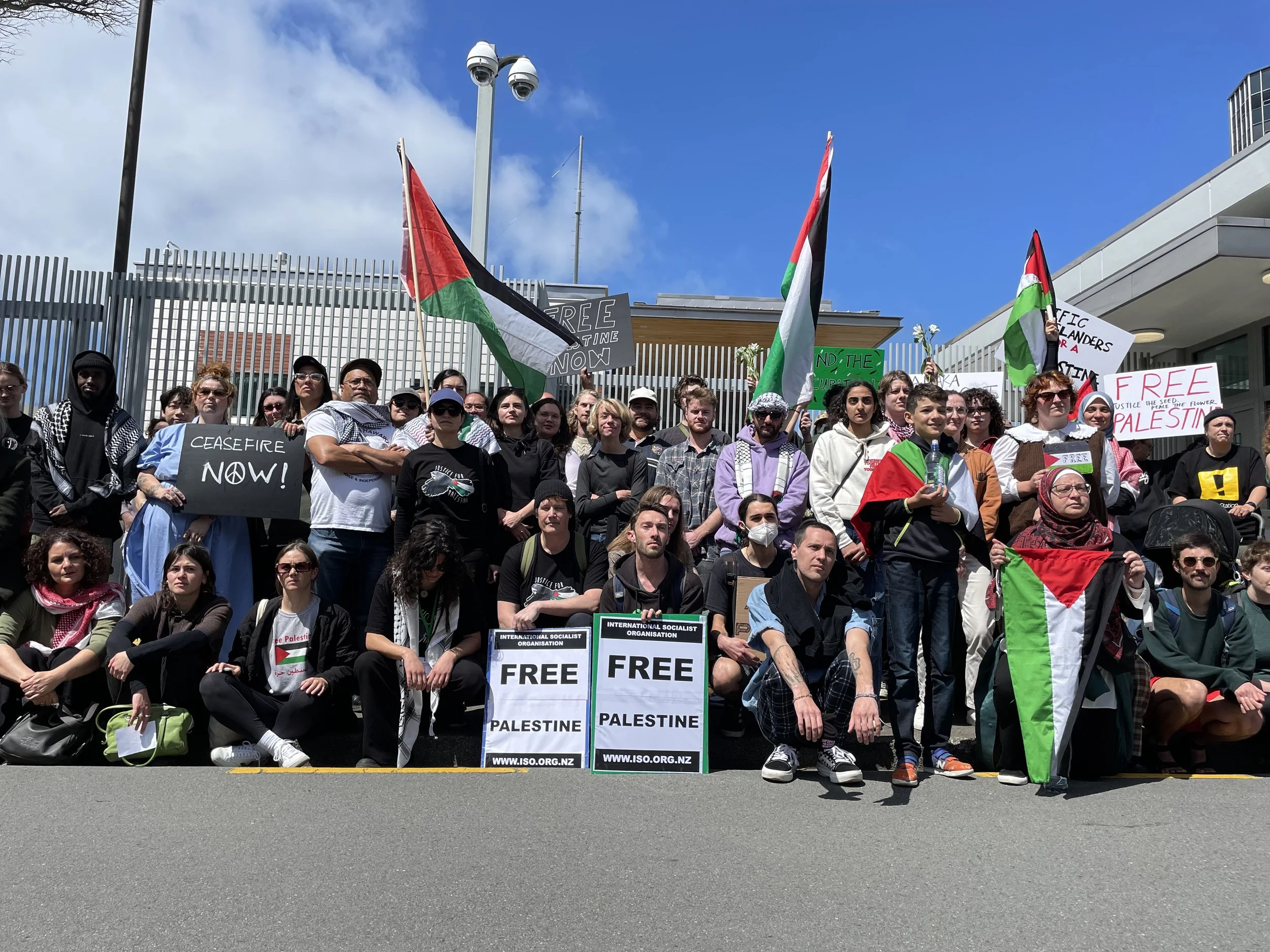
KO WAI TĀTOU
WHO WE ARE
Justice for Palestine is a human rights organisation working in Aotearoa to promote justice, self-determination, equality and freedom for the Palestinian people.
We organise campaigns, rallies, cultural and community events. We work to raise awareness about the Palestinian cause, to grow the solidarity movement in Aotearoa and to advance Palestinian human rights.
We are a democratic, incorporated, membership organisation governed by a constitution and with a Co-ordinating Group elected each year at our AGM. We convene monthly member’s meetings to discuss and agree campaigns and activities.
Below you can read the whakapapa of our kaupapa and tikanga, which guides our work and strategy.
All forms of discrimination are the antithesis of justice, peace and freedom. Justice for Palestine events and social media will not tolerate any act or discourse that adopts or promotes racism, anti-Arab racism, Islamophobia, antisemitism, sexism, xenophobia, homophobia, transphobia or any other form of discrimination.
Everyone who is committed to promoting justice, freedom, equality and self-determination for the Palestinian people, and to act in accordance with our tikanga is welcome to join the Justice for Palestine whānau.

Ō TĀTOU KAUPAPA
OUR PRINCIPLES
Promoting justice, freedom, equality and self-determination for the Palestinian people.
Ō TĀTOU TIKANGA
-
Rangatiratanga
We are led by Palestinian collective values and we are accountable to those values. Our role is to translate and advance these as the experts in our local context.
We are committed to our shared kaupapa. We respect diversity in line with our kaupapa and collective structure.
-
Kotahitanga
We work together, move as one and participate in the mahi.
We also recognise the indivisibility of the Palestinian people and the struggle for Palestine among wider struggles for collective liberation.
-
Wairuatanga
Recognising the spiritual and unseen dimension of our work is important to our collective wellbeing and the interconnectedness of our struggles.
We consider spiritual safety when holding space, hosting events and going about our relationships and organising.
-
Manaakitanga
Working with generosity, hospitality and respect for one another. Emphasis on reciprocity to each other and to the kaupapa.
We work in a way that enhances the mana of the Palestinian cause, each other and that of our allies working more broadly towards collective liberation and decolonisation.
the whakapapa of our kaupapa & tikanga
For Palestinians, and us who stand in solidarity, the struggle for justice is relentless. We watch the genocide in Gaza and the wider violent occupation of Palestine unfold on our screens daily, while those with the power to stop it sit on their hands or, worse, enable it.
Here in Aotearoa we feel compelled to act, to speak, to shout, to waiata, to paint, to craft, to cook, to awhi, to cry, to karakia. We feel a sense of urgency and want to respond.
Yet we know from watching both Māori and Palestinian-led movements that although we must be impatient with an intolerable reality, we recognise these struggles are measured in lifetimes. If we are to stand with Palestinians to achieve the change Palestinians need, we must commit to doing what it takes for as long as it takes. This requires a firm footing and a clear vision.
In forming our kaupapa and tikanga we owe a debt of gratitude to Shamia Love-Shariff and Nadia Abu-Shanab, who have been our wayfinders in this important mahi.
The values behind our Kaupapa
Noura Mansour – then the Community Organising and Advocacy Lead at Australian Palestine Advocacy Network – joined us in Aotearoa for a series of workshops aimed at our Palestinian rangatahi and other activists. In these workshops, Noura encouraged us to think about two sets of values that underpin our cause. These were what we might loosely call global values, and the thawabet (constants/fundamentals) of the Palestinian struggle.
The global values include justice, peace, anti-racism, decolonisation, freedom, equality, self-determination, and human rights.
The five thawabet Noura identified were: the right to return; self-determination; right of resistance for liberation from occupation; Jerusalem/Al Quds as the capital of Palestine; and the indivisibility of the Palestinian struggle.
Each of these fundamentals are worthy of their own deep wānanga, but space allows for just a couple of points here. Clearly, there is much to take issue with in terms of the origins of the global values and the inefficacy of the institutions that are meant to uphold them. We do need to speak about “peace” though, we think it is important to clarify that our commitment to peace is about our local tikanga (more on this later) and our aspiration for a just peace for Palestinians, and not a yardstick for judging the means by which Palestinians on the ground resist. This is reflected in the thawabet of the right to resist, and accepting that there is no ideal way to resist occupation, apartheid and ethnic cleansing. The indivisibility of the Palestinian struggle refers to the need to seek a solution for all Palestinians – whether they reside in Gaza, the West Bank, 1948, or the diaspora – and to reject solutions that deploy the colonial tactic of dividing and ruling.
When we came together as a Co-ordinating Group (COG) to consider our kaupapa and re-examined the principles in our constitution we took the view that the thawabet and global values do and ought to inform our kaupapa – that is what all our actions are working toward and on together. This is the kaupapa we commit to in this mahi.
ARTICULATING OUR TIKANGA
Shamia Love-Shariff (Te Āti Awa Nui Tonu, Taranaki, Ngāti Ruanui, Ngā Ruahinerangi) who, alongside her mother Dr Catherine Love, and other mana whenua whanaunga, have stood staunchly alongside the Palestinian movement and Justice for Palestine for many years, joined the COG for this wānanga. Shamia and her whanaunga Hapai Potaka-Osborne (Te Atihaunui a Pāpārangi, Ngati Tama) guided us in our reflections on the values above, and to think about our tikanga – that is how we do this mahi, and how we keep our kaupapa safe in our context.
Shamia shared with us their experience collectively formulating and laying down the tikanga for the Mau Whenua kaupapa, through which many at Justice for Palestine came to know the whānau. She also shared the kōrero around Te Kahu o te Raukura (which we have posted about before here) and wove into our discussion of peace that this tikanga advocates peaceful but powerful, strategic resistance to injustice.
With the benefit of this mātauranga, we developed the tikanga we are committed to operating under, set out above.
We adopted this kaupapa and tikanga as the COG in November 2024, and as we move forward are actively looking for ways to embed them in the wider Justice for Palestine organisation.
Sharing this kōrero about how they have come to be is one part of this mahi.
In Pōneke, we operate under Te Kahu o te Raukura, a tikanga that advocates peaceful but powerful, strategic resistance to injustice.
Alongside operating under this tikanga laid by Te Kotahitanga o Taranaki Whānui ki Te Upoko o Te Ika , we at Justice for Palestine whakamana our kaupapa by upholding the tikanga set out above.

